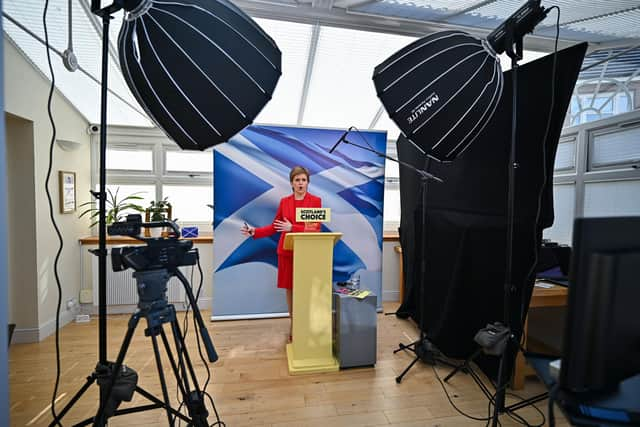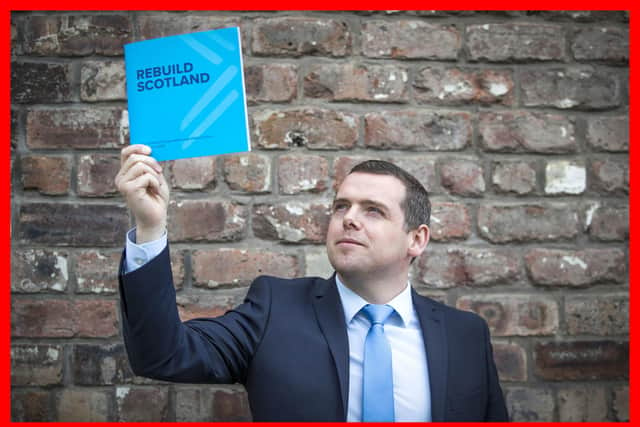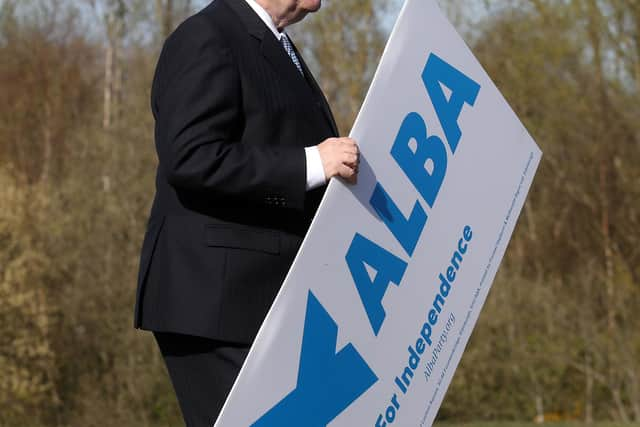Letting a crisis go to waste: An economic review of Scottish party election manifestos - John McLaren
In general, if you’re looking for visions of a new, post pandemic, economic future, you’re out of luck. Even if you’re looking for a ‘how do we catch up on what we’ve lost’ strategy you’re struggling, other than the spraying around of VERY BIG NUMBERS for the NHS and the like.
It’s not that the manifestos are short of ideas, there are a variety of good, sometimes even innovative, ideas swirling around. The problem is that they tend to be a hotchpotch of: fairly small sums to cover specific bases; huge figures in relation to infrastructure/investment long term spending that depend on private sector buy in; radical ideas that are, in reality, never going to be seriously pursued, like a 4 day week or a realistic Minimum Income Guarantee; and stuff that isn’t really economic but can shoehorned in.
Advertisement
Hide AdAdvertisement
Hide AdIn other words there is a lack of cohesion that integrates such policies into some sort of post COVID strategy or vision. This failing is compounded by most parties simply avoiding taking any responsibility for how the big promises are to be paid for.


On the strategy point, one area that is crying out to be addressed is how changes to behaviour and in work patterns over the past year might be built upon. Doing so could release previously unforeseen improvements in working practices and outcomes for employees and employers.
Integrating more home working into daily life would also be environmentally friendly and could help achieve some ‘levelling up’ across Scotland However, the manifestos are pretty bare on this subject.
In contrast, the Irish Government has used the pandemic as an opportunity to take forward a strategy which aims to improve rural prospects and make home working more viable. This strategy envisages a network of more than 400 remote working hubs and includes tax breaks for individuals and companies that support home working. Could something similar work for Scotland and help reduce housing pressures, commuter congestion and carbon emissions?
In terms of catch-up, a key area that needs to be addressed is how to make good on lost learning time in schools. If not adequately addressed this will have a significant economic knock on effect, both personally and nationally, further down the line. The Education Policy Institute (EPI) estimate that the UK Government is providing around £250 per pupil in England (figures will vary slightly across the four nations) whereas somewhere between £1,500-2,000 per pupil would be required to fully compensate for lost learning time. This may sound like a lot but it is a sum similar in size to what the US and Netherlands governments have made provision for.


Meanwhile, the manifestos are full of promises for extra teachers but not on how the children who have lost out will actually catch up.
On the funding issue, the common approach taken across manifestos has been to avoid the politically awkward truth of admitting that taxes will have to rise to pay for all the promises. Considerable extra sums of money will be needed for the various giveaways, or to properly catch up as well as making public services more resilient. Simply assuming that the UK Government, via the Barnett Formula, will provide all of this funding is a dereliction of duty.
In Scotland, the biggest potential source for increased revenues is income tax. However, most parties have either ruled out any income tax increases or suggested they would be restricted to very high earners.
Advertisement
Hide AdAdvertisement
Hide AdSuch an election promise is fiscally reckless. No potential government should rule out increases in their main, self controlled, revenue source at a time of heightened uncertainty. The argument that demand could suffer if taxes rise seems, at least for the middle and top end earners, weak. These households have accumulated substantial extra savings during lockdown which can be drawn down from, post pandemic.


It is also important for tax rises to apply more widely than just at the very top, as this will significantly increase the amount of revenue that any change procures. While such an approach may not be initially progressive, if the money raised is targeted at households on lower incomes then the net impact of such a tax and spend policy can ultimately be progressive.
An alternative funding source, and one that would improve local democracy, is to allow for substantial council tax rises to pay, for example, for the learning catch up. Unfortunately the council tax reform stalemate is likely to continue. Any Scot approaching 30 and thinking of buying a house must wonder why their council tax is going to be based on a valuation made before they were born!
Another example of the fiscal looseness that widely applies across the manifestos is the continued expansion of universal benefits. An increase in such benefits can be a very useful tool in improving the circumstances of poorer families and in reducing poverty. However, this can be done more cheaply and more effectively by targeting larger payments towards poorer households.
All political parties are wary of raising taxes but at a time of great upheaval and when more ‘conservative’ voters might be open to paying for costly upgrades in standards, surely stronger political nerve was needed.


This election was an opportunity for political parties to embrace the challenges posed in these game changing times and to introduce some radical economic and public policy changes. It seems to have been an opportunity largely gone to waste.
- John McLaren is an independent economist at the Scottish Trends website, scottishtrends.co.uk.
Comments
Want to join the conversation? Please or to comment on this article.